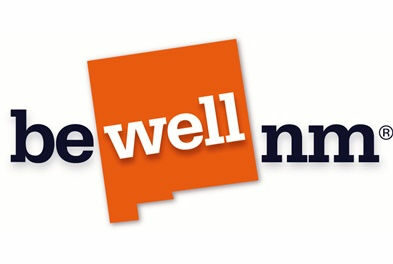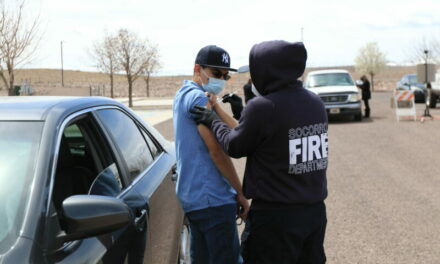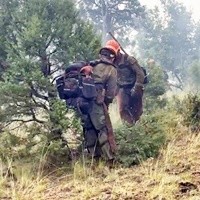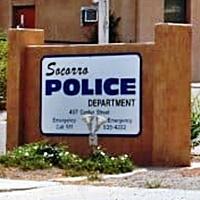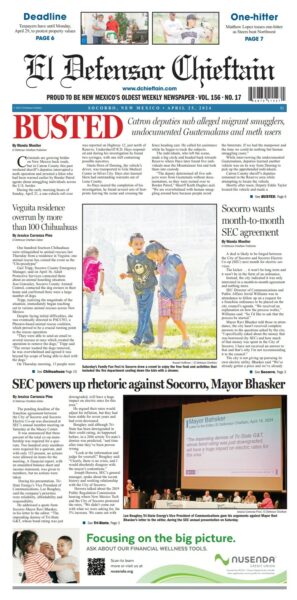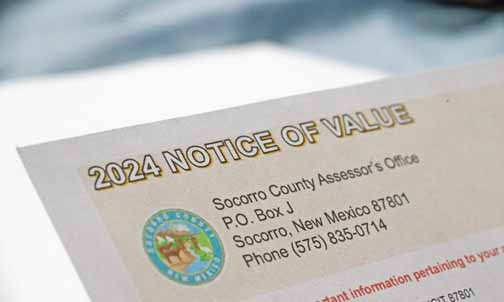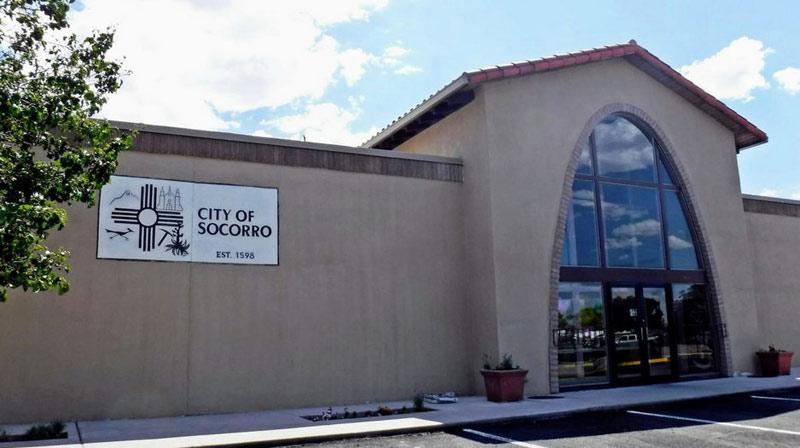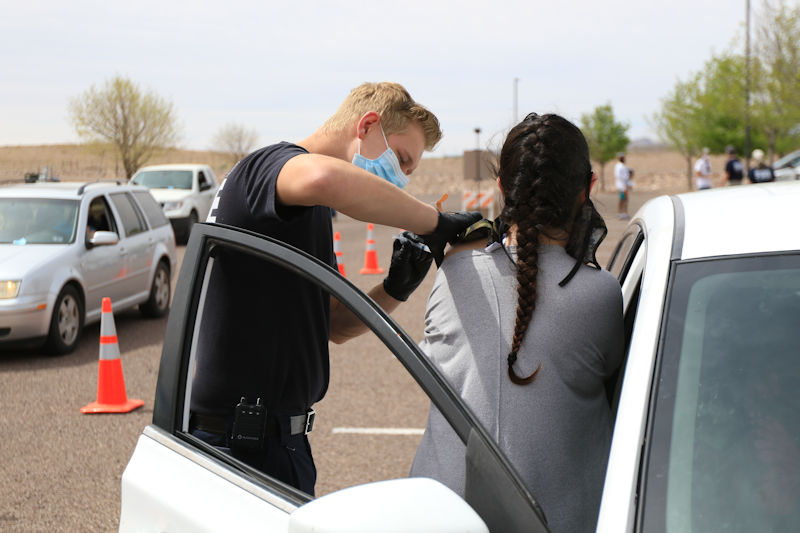
Firefighter Leo Peterson administers a COVID-19 vaccine during a clinic. New Mexico has approved immunocompromised populations to receive a third dose of the vaccine.
Caitie Ihrig | El Defensor Chieftain
Gov. Michelle Lujan Grisham on Tuesday announced that beginning Aug. 20, the state of New Mexico will temporarily re-implement a statewide requirement that facemasks be worn in all public indoor spaces, with only limited exceptions, and regardless of vaccination status, to stem the state’s rising tide of COVID-19 infections and hospitalizations.
The mask directive will be in place through September 15.
Given the slowing of vaccination rates since a peak several months ago, the governor also announced the state will issue a requirement for all workers in certain medical close-contact congregate settings – including hospitals, nursing homes, juvenile justice facilities, rehabilitation facilities, state correctional facilities and more – to be vaccinated against COVID-19.
The state also issued a requirement that all school workers in public, private or charter schools who are not fully vaccinated against COVID-19 or who are unwilling to provide proof of vaccination to their respective supervisors must, effective Monday, Aug. 23, provide proof of a COVID-19 test every week.
“These policies were formulated with expert advice to allow as much personal freedom as possible while still protecting children from this dangerous virus,” Public Education Secretary Ryan Stewart said. “Flouting these requirements puts our communities and our youngest at great risk amid the rapid spread of the Delta variant and cannot be tolerated.”
DOH Acting Secretary David Scrase said that based on the health department’s enhanced modeling, New Mexico will see over 1,000 cases per day in the next few weeks.
In Socorro County, five new cases were reported over the weekend, bringing the cumulative total to 1,387 since the pandemic hit the state in March 2020. The City of Socorro has recorded 666 cases in that period. The county currently has a positivity rate of 5.80 percent.
Statewide, 1,776 new cases were recorded over the weekend. The total cases for the state are 220,340. Five additional deaths were also reported, bringing the coronavirus death toll in New Mexico to 4,451.
“We have several effective tools that work to prevent serious illness and death at this stage of this pandemic,” Lujan Grisham said. “The two most relevant at this moment are vaccines and facemasks. New Mexico continues to conduct statewide outreach to unvaccinated populations and is still among the nation’s leaders in completing vaccinations.”
Through August, any New Mexican receiving a first or second shot of Pfizer or Moderna, or a first-and-only shot of Johnson & Johnson, will receive $100 from the state. To qualify for the incentive, New Mexicans must register at VaccineNM.org.
Vaccines will be administered in Socorro at Macey Center on Friday, Aug. 20 from 11 a.m. to 2 p.m., and Friday, Sept. 24, also from 11 a.m. to 2 p.m. Pfizer, Moderna, and Johnson & Johnson vaccines are free and open to everyone 18 and over, however, guardian consent is required for minors aged 12-17. Registration via vaccinenm.org is recommended but walk-up day of registration is possible.
An additional statement released on Friday reminds New Mexicans that it is a crime to falsify or fraudulently use a CDC vaccination card because it puts the health and safety of others at great risk, including children who are too young to be vaccinated.
As the Delta variant of the novel coronavirus surges nationally, a cottage industry has developed to provide fake vaccination cards, which some unscrupulous individuals who refuse to be vaccinated are using to avoid face mask requirements or other COVID safety protocols.
“This national trend of providing imitation vaccination cards is dangerous, and it’s carelessly placing countless New Mexicans at risk,” Lujan Grisham said. “Don’t do it. If you do, New Mexico law enforcement and criminal justice agencies are poised to address that behavior with the full weight of the law.”
Scrase said getting vaccinated is an opportunity “to protect ourselves, our children, our seniors, and our friends and neighbors who may be immunocompromised.
Scrase added that “Delta won’t be the last variant.”
Individuals who violate state Public Health Orders or the New Mexico Public Health Act may be subject to a fine of up to $5,000 per violation and up to six months in jail. Fake vaccination cards would be o a federal crime if it includes the unauthorized use of the seal of an official government agency.
Due to the increase in hospitalizations across the state, nurses and anyone with a medical license – including recently retired health care personnel with an active license – are asked to volunteer with the New Mexico Medical Reserve Corps.
According to DOH, hospitals in New Mexico are experiencing an increase of hospitalized patients due to delayed care or postponed surgeries, and as a result of the surge in COVID-19 cases from the highly contagious B.1.617.2 Delta variant; two-to-four times more contagious than previous strains.
Additionally, health officials on Monday announced guidance for a third COVID-19 dose for some immunocompromised populations. Last Thursday the FDA modified the Emergency Use Authorizations for the two currently authorized mRNA vaccines, Pfizer BioNTech and Moderna, to allow for a third mRNA COVID-19 vaccine for certain immunocompromised people. In other words, those who have undergone solid organ transplants or have been diagnosed with conditions that are considered to have an equivalent level of immunocompromise. The age groups remain the same: 12-years-old and over for Pfizer-BioNTech, and 18 and over for Moderna.
The possible approval applies only to mRNA vaccines – Moderna or Pfizer – and vaccine providers can start providing the third dose to those immunocompromised patients immediately.
“In the meantime, the health department is continuing to develop plans and operational protocols to ensure that vaccines can be made available as quickly and efficiently as possible,” DOH Deputy Secretary Laura Parajon said.

